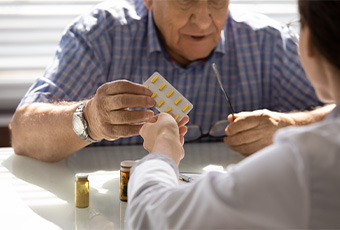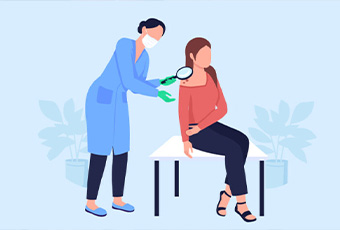What It’s Really Like to Join a Clinical Trial: Inspire Members Share Their Stories

Clinical trials are a vital part of the process for developing new treatments. Typically, they are conducted in four distinct phases. While the goals of each phase are different, there is one common thread among them: Clinical trials require the participation of real patients.
So what is it like to participate in a clinical trial as a patient? Inspire recently conducted a survey of our members asking them to share their experiences, and we received over 1,000 responses. Read on to learn more about some of our findings from the survey.
Top reasons for joining a clinical trial
A desire to contribute to medical research and help others was the top reason respondents joined a clinical trial, with over 30% of respondents sharing this as the reason they participated. Despite this reason, many members also reported that once the trial was complete, they never received further news or information about the results of the research. For those running clinical trials, communicating more clearly with participants about the goal of the trial and following up with results might help patients feel more positively about the clinical trial experience.
“While I think the clinical trial was geared to helping participants and others in the long run, I felt that I didn't have much information to understand the purpose and what would result. It makes participants disconnected from the experience.”
“This clinical trial was many years ago. It was somewhat frustrating because we never heard about any of the outcomes.”
Other popular reasons for joining a clinical trial were the possibility for improved personal health outcomes (26%) and the potential access to new or advanced treatments (17%).
Learning about available clinical trials
Nearly two-thirds of patients heard about their clinical trial from a doctor or other medical professional (41%) or from a hospital or medical center (17%).
Other common sources of clinical trial information included social media sites like Inspire and clinical trial registries like ClinicalTrials.gov.
If you are interested in learning more about clinical trial opportunities from Inspire, make sure you are subscribed to receive Inspire Research emails. To check if you are subscribed, sign in to Inspire, go to your email preferences and select yes next to “Research.”
What was the clinical trial experience like?
For a lot of Inspire members, participating in a clinical trial was a very positive experience. Over 40% of respondents rated their experience as a 5 on a scale of 1-5. Here is what some members had to say about their clinical trial:
“The clinical trial I was involved with gave me early access to a potentially promising medication, which in turn gave me hope. It required daily oral intake of the trial drug and close monitoring by the clinical trial team. I feel like I received a higher level of care/monitoring as a result of participating in the trial.”
“It changed my life.”
“Staff were very helpful and informative; I had a lot of testing done on me, which helped me better understand my condition.”
“The professionals involved were excellent. The drug gave me 8 additional years of life.”
While most Inspire members reported positive experiences, some also had negative experiences. Most comments related to negative experiences addressed issues around trial administration or logistics. A few negative comments mentioned adverse responses to the treatment being tested.
“I had to drive 2 hours each way and then still had to wait. I quit before it was over because of this.”
“Very poor patient assistance, felt like a guinea pig and no compassion and support given to the patients. Constant changing of requirements for participation etc.”
As you can see from these comments, patient experiences in clinical trials have a lot to do with how well the clinical trial is run, including time spent, instructions, communication, and more. Many Inspire members rated their clinical trial experience highly—even if they did not see a direct benefit to their health—as long as the trial was run well.
Barriers to clinical trial participation
So what factors prevent individuals from participating in future clinical trials? Overwhelmingly, Inspire members said that potential unknown side effects and risks of the experimental treatment were their primary concerns. Travel commitment was the third most common barrier to participation.
As this research shows, Inspire members are a wealth of information when it comes to what it’s like to participate in a clinical trial. If you have a story to share about your clinical trial experience, or a question about participating in one for your condition, start a conversation in your Inspire community.
Disclaimer
Member comments have been lightly edited for length and clarity. This content is for general informational purposes only and does not necessarily reflect the views and opinions of any organization or individual. The content should not be used as a substitute for professional medical advice, diagnosis, or treatment. Please consult your healthcare provider about any questions you may have regarding a medical condition.




